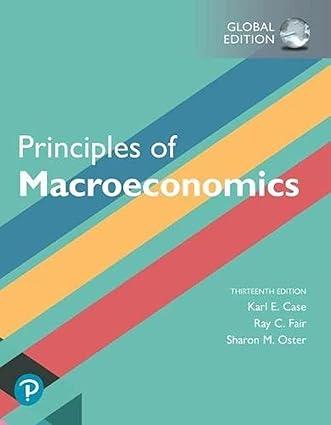This chapter has described how saving is related to income. Economists have generally assumed that people make
Question:
This chapter has described how saving is related to income. Economists have generally assumed that people make their saving decisions rationally, just as they make other decisions about choices in consumption and the labor market. Saving decisions involve thinking about trade-offs between present and future consumption. Recent work in behavioral economics has highlighted the role of psychological biases in saving behavior and has demonstrated that seemingly small changes in the way saving programs are designed can result in big behavioral changes.
Many retirement plans are designed with an opt-in feature. That is, you need to take some action to enroll. Typically, when you begin a job, you need to check “yes” on the retirement plan enrollment form. Recent work in economics by James Choi of Yale University, Brigitte Madrian of Harvard, and Dennis Shea, head of executive compensation at Aetna, suggests that simply changing the enrollment process from the opt-in structure just described to an opt-out system in which people are automatically enrolled unless they check the “no” box dramatically increases enrollment in retirement pension plans. In one study, the change from an opt-in to an opt-out system increased pension plan enrollment after three months of work from 65 percent to 98 percent of workers.
Behavioral economists have administered a number of surveys suggesting that people, on average, think they save too little of their income for retirement. Shlomo Benartzi, from the University of California, Los Angeles, and Richard Thaler, recent Nobel prize winner from the University of Chicago, devised a retirement program to try to increase saving rates. Under this plan, called Save More Tomorrow, employees are offered a program that allows them to precommit to save more whenever they get a pay raise. Behavioral economists argue that people find this option attractive because it is easier for them to commit to making sacrifices tomorrow than it is for them to make those sacrifices today. (This is why many people resolve to diet sometime in the future but continue to overeat today.) The Save More Tomorrow retirement plans have been put in place in a number of companies, including Vanguard, T. Rowe Price, and TIAA-CREF. Early results suggest dramatic increases in the saving rates of those enrolled, with saving rates quadrupling after four years and four pay raises.

Question
The Save More Tomorrow Plans encourage people to save more by committing themselves to future action. Can you think of examples in your own life of similar commitment devices you use?
Step by Step Answer:

Principles Of Macroeconomics
ISBN: 9781292303826
13th Global Edition
Authors: Karl E. Case,Ray C. Fair , Sharon E. Oster





